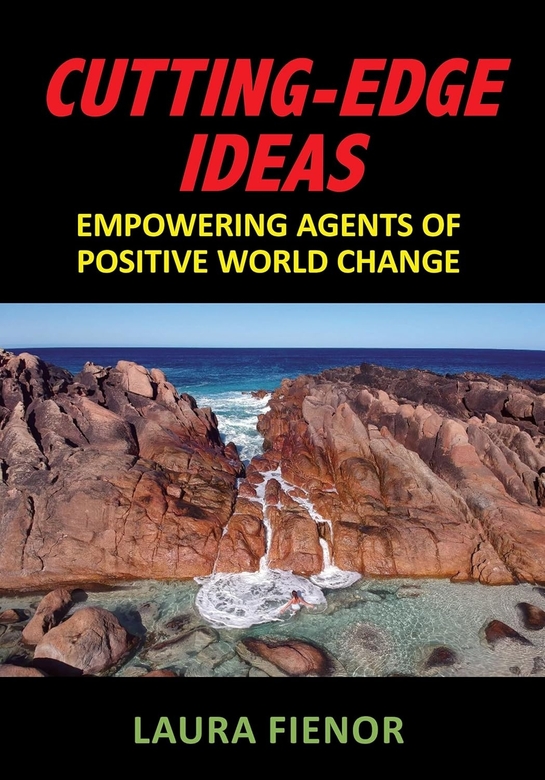
A bold and visionary proposal for a better world, Cutting-Edge Ideas: Empowering Agents of Positive World Change by Laura Fienor is a wide-ranging treatise on what’s wrong with modern society and what we as individuals can do about it. Revolutionary change is intimidating for many reasons, but Fienor defiantly and articulately argues that we are collectively approaching too many points of no return, and that drastic measures must be taken.
Unapologetically pointing the finger at capitalism and consumerist society, as well as militarism, colonialism, misogyny, racism, and other ideological divides, Fienor’s voice is brazen, righteous, and refreshing, fearlessly laying out a laundry list of sociological, environmental, economic, and interpersonal crises that face contemporary life. Essentially, if humans are to save ourselves from self-destruction, we must fundamentally shift our priorities, our educational pathways, and our understanding of the natural world.
By first outlining the causes of chaos in the direction and organization of society today, whether via global industrialization, violence and war, fossil fuel consumption, homogenized education, or the promotion of individualism over community, Fienor offers a clear and uncompromising thesis. What follows are her proposed solutions, some of them radical and original, and others closer to simple common sense in an age seemingly gone mad.
When it comes to the section about creating agents of positive world change, the tone of the book shifts somewhat, necessarily moving from academic density towards more abstract and philosophic rhetoric, particularly in Chapters 7 and 8. This middle section blends healthy self-care tips, psychological guidance, and even some quantum physics with more estoric concepts of telepathy, precognition, mediums, mystical awakenings, and more, but this is a comparably short and succinct part of the book. The final section on mental, physical, and emotional well-being makes for a strong conclusion, and offers quality insights and suggestions for realistic improvement that can be pursued every day, in unobtrusive but powerful ways.
While this book will strike an undeniable chord of relief and gratitude in like-minded individuals who feel that they’ve been shouting about the sky falling for decades, the content will no doubt limit the readership to those on one side of the ideological fence. That being said, Fienor humbly admits her biases, but rather than diminishing her authority on these issues, it frees her from holding back about subjects that deserve an impassioned defense. Furthermore, certain elements of spirituality are embraced by people of all ideologies, and strategies for self-care don’t discriminate based on your voting record, so the book has the potential to reach a wider audience.
Although many of the issues she addresses in detail are viewed through an Australian lens, the broader arguments and implications are applicable to all nations, particularly consumerist societies of the West. For example, Fienor’s ideas for restructuring education to prepare the next generation to literally save our planet is ambitious, but also essential, while simultaneously uplifting indigenous traditions and wisdom within the broader culture.
Few readers will wholeheartedly agree with everything in these pages, but no one could read this thought-provoking mixture of spirituality, political and social science, and self-help without looking differently at our modern world.
Book Links
STAR RATING
Design
Content
Editing
Get an Editorial Review | Get Amazon Sales & Reviews | Get Edited | Get Beta Readers | Enter the SPR Book Awards | Other Marketing Services























Leave A Comment